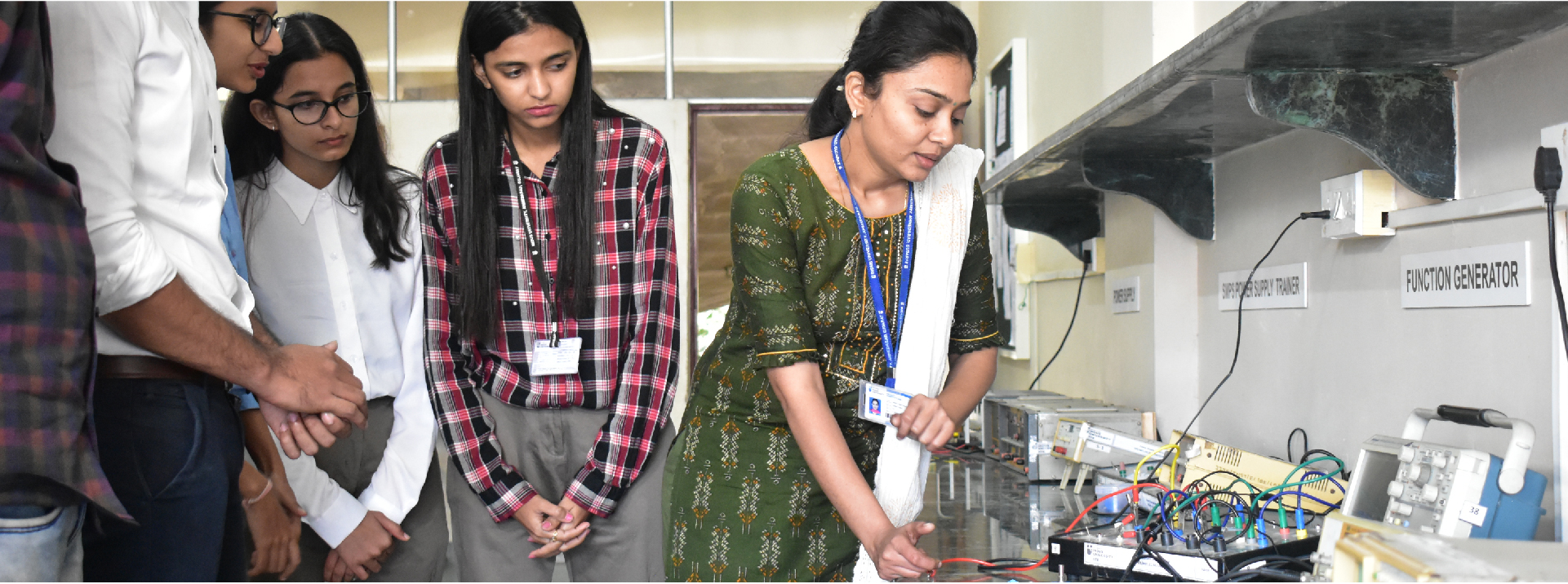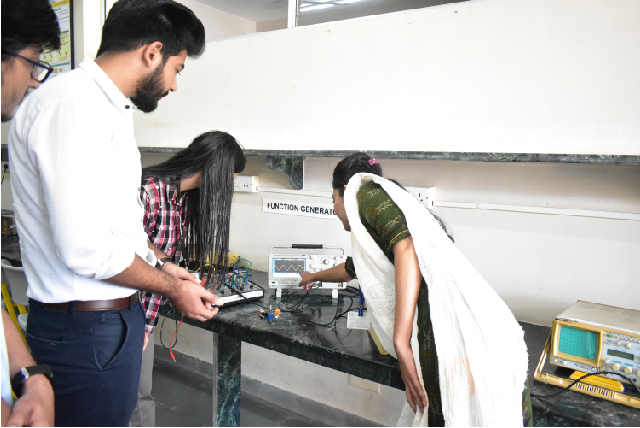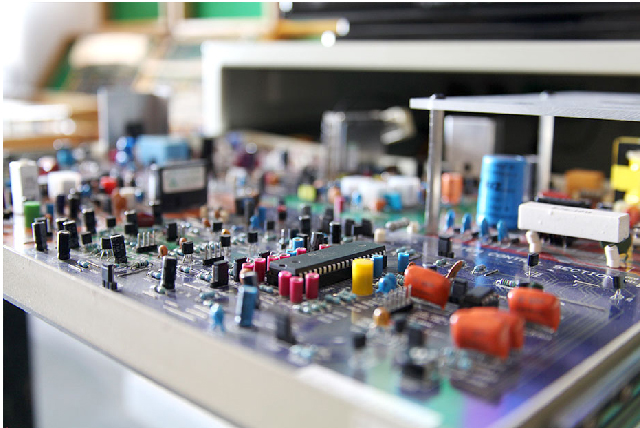Announcement
Get Ready for INDUS CUP 2K26! | Dates: 5–10 January 2026 | Stand a Chance to Win Cash Prizes up to ₹10,00,000!...Read more Get Ready for INDUS CUP 2K26! | Dates: 5–10 January 2026 | Stand a Chance to Win Cash Prizes up to ₹10,00,000!
We are excited to announce the Indus Hackathon 2025, an exhilarating one-day event organized by the CSE Department of Indus University....Read more We are excited to announce the Indus Hackathon 2025, an exhilarating one-day event organized by the CSE Department of Indus University.
26th ISTE Faculty Annual State Convention will be held at Indus University on April 27, 2023....Read more 26th ISTE Faculty Annual State Convention will be held at Indus University on April 27, 2023.
Get Ready for INDUS CUP 2K26! | Dates: 5–10 January 2026 | Stand a Chance to Win Cash Prizes up to ₹10,00,000!...Read more Get Ready for INDUS CUP 2K26! | Dates: 5–10 January 2026 | Stand a Chance to Win Cash Prizes up to ₹10,00,000!
We are excited to announce the Indus Hackathon 2025, an exhilarating one-day event organized by the CSE Department of Indus University....Read more We are excited to announce the Indus Hackathon 2025, an exhilarating one-day event organized by the CSE Department of Indus University.
26th ISTE Faculty Annual State Convention will be held at Indus University on April 27, 2023....Read more 26th ISTE Faculty Annual State Convention will be held at Indus University on April 27, 2023.

The Bachelor of Technology (B.Tech) program in Electronics and Communication Engineering at our esteemed institution, Indus University, is meticulously designed to cultivate specialists capable of conceiving, designing, and implementing impactful electronics and communication systems. Rooted in a robust curriculum that encompasses Analog & Digital Communications, Digital Logic & Circuits, as well as Coding & Information Theory, our B.Tech Electronics & Communication Engineering course equips students with a formidable foundation in the essentials of electronics and communications engineering.
Established in 2008, our Department of Electronics and Communication Engineering stands as one of the premier institutions in Gujarat, renowned for its faculty of highly qualified and experienced professionals holding advanced degrees across various specialties. This distinguished faculty body ensures that our institution remains the foremost destination for pursuing Electronics & Communication Engineering studies in Ahmedabad, Gujarat.
Our four-year undergraduate program, the B.Tech in Electronics and Communication Engineering, offered by the Indus Institute of Technology and Engineering, imparts students with profound insights into circuits, signals, and engineering methodologies essential for the development of cutting-edge electronics and communication devices.
The scope of the B.Tech in Electronics and Communication Engineering extends far and wide, offering a plethora of career opportunities and avenues for research. Graduates find themselves in high demand for both internships and full-time positions in both private and public sectors. Moreover, aspiring entrepreneurs can explore ventures within esteemed public sector enterprises such as BSNL, MTNL, SAIL, BHEL, and ONGC.
Our program is dedicated to nurturing professional engineers who possess a fervent drive for exploring the latest technological innovations. Admittance to the B.Tech in Electronics and Communication Engineering requires candidates to have completed their 10+2 education in the science stream, with a strong foundation in core subjects including Physics, Chemistry, Mathematics, and Computer Science.
Upon completion of the program, graduates can pursue diverse career paths, including roles such as Communication Engineer, Network Engineer, RF Engineer, Electronics Engineer, and Research and Development Engineer. The practical-oriented approach of our curriculum ensures that students engage in mini-projects directly relevant to industry demands, bridging the gap between theoretical knowledge and practical application.
At IITE, we take immense pride in offering a holistic B.Tech program in Electronics and Communication Engineering, geared towards preparing students for the dynamic challenges of the real world. Our commitment to providing a conducive learning environment, coupled with hands-on experiences and engaging workshops, empowers our students to acquire practical skills alongside theoretical knowledge. With dedicated faculty and state-of-the-art facilities, we foster an atmosphere where innovation thrives and students excel.
The Admission Committee for Professional Courses (ACPC) will admit students based on merit on 50% of the sanctioned strength for each course. The student needs to register himself with ACPC after the result.
50% seats of the sanctioned strength of each course are Management Quota, admission of which is handled by the institute as per guidelines of ACPC.
Minimum Aggregate 45% in Physics, Chemistry & Mathematics, Theory exam in H.S.C. of any boards.
Course Duration
4 Years (8 Semesters)
Engineering proficiency: To tackle complicated engineering problems, utilize your knowledge of mathematics, science, engineering fundamentals, and an engineering speciality.
Analysis: Using the fundamental concepts of mathematics, the natural sciences, and engineering, formulate, identify, assess research writings, and analyze complex engineering challenges to obtain validated conclusions.
Design & development solutions: Consider safety hazards, cultural and environmental considerations, and design solutions for challenging technical problems and system components or methodologies that adequately address the indicated needs.
Sustainability and Environment: Demonstrate an awareness of the impact of professional engineering solutions in societal and environmental contexts and the importance of long-lasting developments.
Individual and teamwork: Effectively perform independently, in varied groups, and in leadership roles in multidisciplinary situations.
Communication: Communicate widely about challenging engineering tasks with the engineering community and the general public, for example, by comprehending and writing robust reports and design documentation to provide persuasive presentations and get precise instructions.
Project management: Apply engineering and management ideas to one's assignment as a team member and leader to work on projects and in multidisciplinary backgrounds, demonstrating detail and comprehension in both areas.
All laboratories are well-equipped with the latest & updated hardware and software instruments to support learning dissemination in the classroom and provide hands-on practical experience.
This laboratory aims to acquaint the student with essential laboratory equipment, including personal computers and circuit simulators like Pspice, as well as energy metres, multimeters, frequency counters, voltmeters, and ammeters. Another goal is comprehending proper laboratory methods and techniques and reinforcing academic knowledge through experience and vice versa.
This laboratory deals with the analysis and manipulation of signals. Signals can be either analogue, where the signal varies continuously according to the information, or digital, which varies according to a series of discrete values representing the information. For analogue signals, signal processing may involve amplifying and filtering audio signals for audio equipment or modulation and demodulation of signals for telecommunications.
This laboratory handles the understanding and practical instruction of various signal processing techniques and algorithms. It offers plenty of chances for students to comprehend numerous projects using numerous signal processing approaches. The development and implementation of algorithms in MATLAB and D.S.P. Processors are encouraged for students. In addition to performing the tasks mentioned earlier, this lab helps students complete minor and major projects in signal processing.
This lab exposes students to the design of antennas and circuits that operate at R.F. or higher frequencies. Microwaves now affect everyone. Microwaves are helpful when we watch television or make long-distance calls. After conducting hands-on laboratory experiments, students better understand how microwaves are used in communication, health care, national security, alarm systems, and police speed traps. In order to model and optimize the numerous microwave components and various practical antennas, students receive hands-on training in the HFSS programme.
The student's understanding of the physical principles and practical applications of digital and electronic equipment is made possible by this laboratory. As a result, it makes them effective managers for finding and replacing defective components. Microprocessor-based systems have a solid reputation for importance. Only the world of Digital computers has found a home in every aspect of life since the invention of the microprocessor. This technology has a wide range of industrial applications for managing and effectively operating machinery.
This laboratory focuses on designing and testing electrical circuits that achieve certain functionality by utilizing the electronic characteristics of parts such as resistors, capacitors, inductors, diodes, and transistors. Undergraduate students can receive basic hands-on training in this lab.
The students of Electronics and Communication Engineering can make an exciting career in Electronics Manufacturing Organisation, Health Care Equipment Manufacturing, Telecommunication, Power Electronics, and various other industries including steel, petroleum, and chemical and IT, Mobile Communication Internet Technologies, etc.
The Training & Placement Department (T & P Dept.) at Indus University has a separate team that bridges two essential ends: academia and industry. It demonstrates a link between educational institutions, university departments, and businesses.
The focal point for career counselling for university students pursuing studies in all programmes and streams is the Training & Placement Department (T & P Dept.). It provides students with comprehensive career options by assisting them in choosing and pursuing their ideal vocations.
The Admission Committee for Professional Courses (ACPC) will admit students based on merit on 50% of the sanctioned strength for each course. The student needs to register himself with ACPC after the result.
50% seats of the sanctioned strength of each course are Management Quota, admission of which is handled by the institute as per guidelines of ACPC.
Minimum Aggregate 45% in Physics, Chemistry & Mathematics, Theory exam in H.S.C. of any boards.
Course Duration
4 Years (8 Semesters)
Engineering proficiency: To tackle complicated engineering problems, utilize your knowledge of mathematics, science, engineering fundamentals, and an engineering speciality.
Analysis: Using the fundamental concepts of mathematics, the natural sciences, and engineering, formulate, identify, assess research writings, and analyze complex engineering challenges to obtain validated conclusions.
Design & development solutions: Consider safety hazards, cultural and environmental considerations, and design solutions for challenging technical problems and system components or methodologies that adequately address the indicated needs.
Sustainability and Environment: Demonstrate an awareness of the impact of professional engineering solutions in societal and environmental contexts and the importance of long-lasting developments.
Individual and teamwork: Effectively perform independently, in varied groups, and in leadership roles in multidisciplinary situations.
Communication: Communicate widely about challenging engineering tasks with the engineering community and the general public, for example, by comprehending and writing robust reports and design documentation to provide persuasive presentations and get precise instructions.
Project management: Apply engineering and management ideas to one's assignment as a team member and leader to work on projects and in multidisciplinary backgrounds, demonstrating detail and comprehension in both areas.
All laboratories are well-equipped with the latest & updated hardware and software instruments to support learning dissemination in the classroom and provide hands-on practical experience.
This laboratory aims to acquaint the student with essential laboratory equipment, including personal computers and circuit simulators like Pspice, as well as energy metres, multimeters, frequency counters, voltmeters, and ammeters. Another goal is comprehending proper laboratory methods and techniques and reinforcing academic knowledge through experience and vice versa.
This laboratory deals with the analysis and manipulation of signals. Signals can be either analogue, where the signal varies continuously according to the information, or digital, which varies according to a series of discrete values representing the information. For analogue signals, signal processing may involve amplifying and filtering audio signals for audio equipment or modulation and demodulation of signals for telecommunications.
This laboratory handles the understanding and practical instruction of various signal processing techniques and algorithms. It offers plenty of chances for students to comprehend numerous projects using numerous signal processing approaches. The development and implementation of algorithms in MATLAB and D.S.P. Processors are encouraged for students. In addition to performing the tasks mentioned earlier, this lab helps students complete minor and major projects in signal processing.
This lab exposes students to the design of antennas and circuits that operate at R.F. or higher frequencies. Microwaves now affect everyone. Microwaves are helpful when we watch television or make long-distance calls. After conducting hands-on laboratory experiments, students better understand how microwaves are used in communication, health care, national security, alarm systems, and police speed traps. In order to model and optimize the numerous microwave components and various practical antennas, students receive hands-on training in the HFSS programme.
The student's understanding of the physical principles and practical applications of digital and electronic equipment is made possible by this laboratory. As a result, it makes them effective managers for finding and replacing defective components. Microprocessor-based systems have a solid reputation for importance. Only the world of Digital computers has found a home in every aspect of life since the invention of the microprocessor. This technology has a wide range of industrial applications for managing and effectively operating machinery.
This laboratory focuses on designing and testing electrical circuits that achieve certain functionality by utilizing the electronic characteristics of parts such as resistors, capacitors, inductors, diodes, and transistors. Undergraduate students can receive basic hands-on training in this lab.
The students of Electronics and Communication Engineering can make an exciting career in Electronics Manufacturing Organisation, Health Care Equipment Manufacturing, Telecommunication, Power Electronics, and various other industries including steel, petroleum, and chemical and IT, Mobile Communication Internet Technologies, etc.
The Training & Placement Department (T & P Dept.) at Indus University has a separate team that bridges two essential ends: academia and industry. It demonstrates a link between educational institutions, university departments, and businesses.
The focal point for career counselling for university students pursuing studies in all programmes and streams is the Training & Placement Department (T & P Dept.). It provides students with comprehensive career options by assisting them in choosing and pursuing their ideal vocations.

An imaginative educational plan of this program will empower understudies..

An imaginative educational plan of this program will empower understudies..